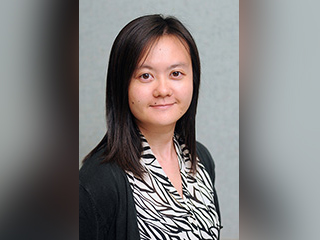
In July of 2016, UCR assistant professor Cecilia Cheung, Ph. D, was awarded the American Psychological Association’s 2016 Early Career Research Grant in Developmental Psychology to assist the funding of her ongoing research project titled, “Where is the Pygmalion? The Role of Parents’ Expectation in Children’s Learning,” which is expected to be completed in the summer of 2017. This research is intended to expand on the implications of parents’ expectations of their children’s academic performance, assuming that positively reinforced and controlling behaviors significantly impacts their child’s academic achievement.
Cheung’s current focus in psychology is on child development and the role of authority figures, such as parents and teachers, in their learning success and she has taken a cross-cultural approach to subjects she has studied. Her previous project titled, “Controlling and Autonomy-Supportive Parenting in the United States and China: Beyond Children’s Reports” asserted that the negative effects of controlling child-rearing influences children beyond China, where the “Tiger Mom” stereotype has derived from, and has possibly expanded globally. The dynamic outlook professor Cheung has endowed to the psychology field has taught both students and parents alike that not only do the overt actions that adults may embark upon newer generations impact their achievement and overall success but their expectations and cognition as well.
To discover the background story of Cheung’s avenue of research and personal commentary she has on her studies, we asked the professor herself a few questions regarding her influences and both life and career advice she would offer students.
Jasmine: The first few questions I would like to ask center around your personal background leading up to the career choice within the psychology field: What was your upbringing like? Do you have any personal connection to controlling and autonomy-supportive parenting as you tested on within your study, “Controlling and Autonomy-Supportive Parenting in the United States and China?” What inspired you to conduct research that mainly deals with topics such as parenting styles and academic performance?
Professor Cheung: I grew up in Hong Kong in the ‘80s when the city was a British colony. My parents were highly autonomy-supportive. They would often allow me and my sister to come up with our own plans about how we use our time and the types of activities we want to engage in. There were implicit routines in our household about what my sister and I were expected to do (e.g., homework, practice violin) and we require(d) very little oversight from our parents. My father loved math and computer(s). He would help us with homework and test preparation once in awhile; he would also come up with interesting math puzzles and games for us to pass time (with). My parents were supportive of our education but were never overly-demanding on grades.
I became interested in understanding the role of parents in children’s learning when I was in college. As a psychology major, I was drawn to research on Chinese parenting. In particular, scholarly work on the Chinese notion of “guan” (which means govern and love at the same time) was very intriguing to me. At that time, I was also a part-time tutor and worked with a number of elementary school children who were struggling academically. Because much of the tutoring happened in the homes of the students, I was able to carry out conversations with their parents — the experience led me to think about the connection between parenting and children’s motivation in school. Why do some children give up easily when they face challenge(s)? Should parents set high expectations? How should parents react when children come home with good vs. disappointing grades? I was lucky to be able to conduct a small research study in my final year in college and I am still in the process of answering many of the questions that resulted from that initial study as well as the studies that followed.
There is strong research evidence indicating that psychological control often dampens children’s emotional adjustment, especially when children progress into adolescence.
Jasmine: Next, I would like to ask you if you have any advice for students who might want to join the psychology field as well but do not know how to follow their desired path: Were there any roadblocks in obtaining your assistant professor position? How were you able to conduct your study as well as assemble a group of three other researchers to help you (in regards to your study that I mentioned above)? What is the most rewarding aspect of your job or in carrying out this research? What do you anticipate discovering in your ongoing study, “Where Is The Pygmalion?”
Professor Cheung: I would suggest to students to remain curious about their surrounding(s) and be tenacious. It is a fascinating process to try and understand human behaviors, but not all attempts are useful and/or successful. Many students who choose to go into psychology want to “help others” and “make the world a better place”; although progress may seem slow at times, persistence is key. With regard to my cross-cultural studies, they wouldn’t be possible without my highly patient and creative collaborators, as well as students in my research laboratory. It is often challenging to conduct research in multiple sites, especially in sites where cultural practices and languages differ. We often had to overcome challenges about translating research materials (e.g., surveys, experimental instructions) and had to go through the painful process of ensuring that all aspects are equivalent to allow for fair and meaningful comparative work. All is worthwhile, however, when we become a bit more knowledgeable about the questions we set out to understand.
Jasmine: Lastly, I think it would be beneficial to include direct advice to students who may be dealing with some issues that you have found information about: How can a student who has been or is currently enduring controlling parenting alleviate some of the pressure from their parents? That is, do you know of any methods in dealing with this kind of stress, or is it even possible that such an ingrained experience can be diminished or depleted? What are the long-term implications of this type of child-rearing and is there a way someone can at least find support for themselves?
Professor Cheung: This is an interesting question and one that definitely requires more research attention. Children’s perceptions about their parents can play a key role here. It may be beneficial to understand why their parents are using the controlling practices. In Amy Chua’s book the “Battle Hymn of the Tiger Mother,” she reasoned that her practices to control her children’s whereabouts were “meant for good.” For example, she described that mandating her children to practice musical instruments for long hours was a means to ensure that they can become excellent and develop a sense of accomplishment. Of course, extreme forms of control (e.g., shaming) can be detrimental. There is strong research evidence indicating that psychological control often dampens children’s emotional adjustment, especially when children progress into adolescence. It may be beneficial for children to try and walk in their parents’ shoes, which may help them relieve some of the stress and may even allow them to appreciate their parents’ actions. However, extreme forms of psychological control are deleterious in the long run — regardless of how children try to change their perceptions; the presence of other social support (e.g., teachers, counsellors, mentors, and friends) may be crucial.








